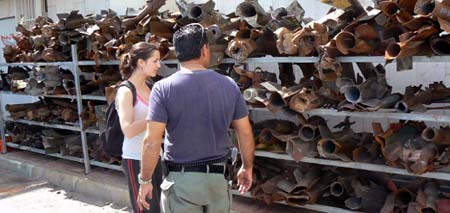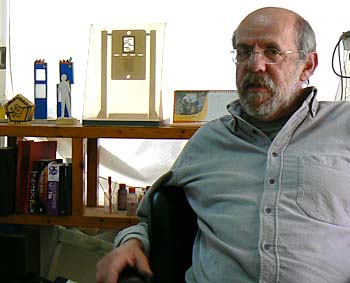This website was created in 2008 and taken offline in 2018.
|
||||||
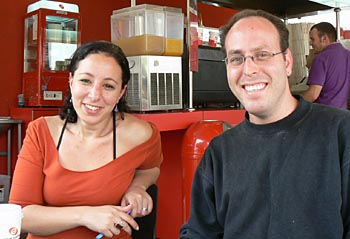 Ofir and Amit |
Ofir and Amit, third and second-year film school students, seem relaxed on a bright morning on the Sapir college campus. "But I am more afraid inside myself than six months ago," Ofir says. "A kassam fell thirty meters from me. I could hear the whistle of the rocket before it landed." But even this near miss has not prevented Ofir from pursuing his studies. "We cannot be depressed," he says. "We must live. I'll stay here next year and finish my studies. But I would not want to raise a family here under these conditions." Ofir works part-time with underprivileged children, and faces a unique problem. "When the tseva adom sounds, my student runs away cursing in both Russian and Hebrew. I must always be thinking, what can I do with him? I am always looking for protection for him." Both Ofir and Amit radiate a positive attitude in spite of the difficulties of studying under almost war-time conditions. Their energy seems to fill the space around them. |
|||||
|
|
||||||
Lior is 15 and lives on Kibbutz Be-eri, a short distance from the Gaza border. He enjoys gym, many outdoor sports, computers, and photography. It could almost be said that he lives a normal teenage life, except that kassam rockets are fired at him and he goes to a school built with special reinforcement to withstand missile strikes. On a United Jewish Communities website, Lior has made a strong statement: "In spite of our fear and the danger, I think that we need to stay strong and not give up. If we surrender they will see that we are weak and vulnerable and keep firing rockets on us. We must have faith that this situation will soon be over and there will be peace between us, the Israelis and the Palestinian people." Kibbutz Be'eri at first glance seems to be an idyllic community, and Lior's home is a warm and welcoming place. Lior's mother serves us orange juice and talks about the history of the kibbutz and its founding in 1946 in spite of British opposition. "There will be a new school next year," says Lior, speaking as a member of a new generation living here and looking to the future. |
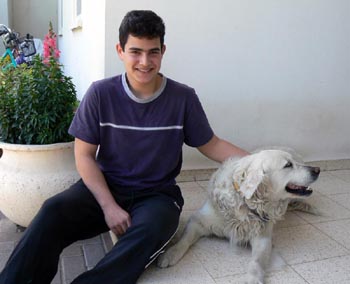 Lior |
|||||
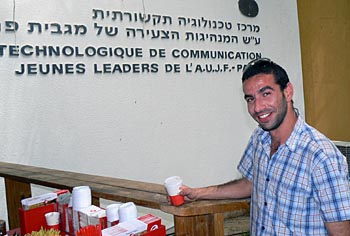 Sharon |
He attributes much of his ability, and his generation's ability, to deal with hardship to experiences after the army. "We travel, we see the world," he says. "We do not move from bubble to bubble, from school to the army to work. We go to different countries and see how people live there, and it makes us stronger." After Sharon's army and travel experiences, he wanted a smaller community with a friendly environment, and Sapir met his needs. "The mentality is different here," he says. "It is a family place." Would you ever consider leaving because of the kassams, I ask him. "Not ever," he replies. "I would not even consider it." |
|||||
Ruvin sits beside a window with no glass. A few days earlier, a kassam missile landed a few feet from his art studio, blowing out the windows and spraying shrapnel into his building. I ask him if this close call might scare him away. He looks at me as if I had asked a ridiculous question, and shrugs. 'We must live," he says, and smiles. We discuss his art. Ruvin has had exhibitions around the world, and works in a variety of mediums, from painting to sculpture. "It is all part of the same process," he says. "I begin with the concept which I put to paper. From that the work might become a painting, it might become something else." I ask him about his favorite mediums to work in. "It is all good," he answers, "but I particularly like the texture of wood, and the variety of papers that are available. Wood is of course more three-dimensional, but paper has its own unique qualities." Ruvin is an artist in a war zone, undeterred by attacks on his home. |
|
|||||
|
||||||
